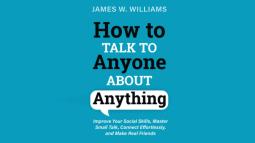Focused reading requires mental effort, as we need to concentrate on the material we are reading while ignoring external distractions and wandering thoughts.
Focused reading is a crucial skill for improving our ability to take in and comprehend information.
So, this article will explore some focus-reading-enhancing strategies and techniques.
First, we will discuss how important it is to properly prepare before reading, including creating a comfortable reading space and setting a clear purpose. We will also discuss techniques such as text segmentation, highlights, and notes to facilitate understanding and review. Additionally, we will explore focus-enhancing tools like time management techniques and prioritizing reading tasks, as well as how to deal with distracting thoughts and mental motivation to maintain focus.
We can improve our focus while reading and enhance our understanding and retention of content by using these strategies and techniques, increasing productivity and maximizing the time and effort invested in reading.
20 Strategies to Improve Focus Reading
Several strategies can be followed to improve focused reading:
1. Prepare the Right Environment
Provide yourself with a quiet environment free from distractions like noise and mobile phones. Declutter your reading space to be comfortable and free from items that divert your attention.
2. Set a Clear Goal
Define your reading purpose before even starting. This could be learning a certain concept or getting specific information. Setting a goal helps focus and direct attention toward important content.
3. Text Segmentation Technique
Use text segmentation to facilitate understanding and review. Divide the text into smaller paragraphs and identify key ideas in each one, which will organize the material and make it easier to understand.
4. Use Highlights and Notes
While reading, use highlighting tools and notes to emphasize key points and main concepts. You can also summarize concepts for later review by writing side notes and using highlighting techniques like underlining and marking keywords.
5. Organize Time and Set Priorities
Get a list of the books or texts you are reading, prioritize based on your needs and goals, schedule a fixed time for reading, and maintain a reading order based on importance. These practices will help you focus and avoid irrelevant content.
6. Handle Distracting Thoughts
Redirect your attention to the text when your focus drifts while reading. Use deep breathing and meditation techniques to calm your mind and concentrate.
7. Mental Stimulation
Stimulate and activate your mind before reading with brain exercises like solving puzzles. Also, you can increase blood flow to the brain and sharpen focus by using mental stimulation strategies like eating a healthy snack before reading or doing some light exercise.
8. Meditation
Practice meditation before starting to read. Sit quietly, close your eyes, and focus on deep breathing. Meditation helps calm the mind and organize thoughts before beginning to read.
9. Avoid Stress
Try to read when you're not too stressed out, either mentally or physically. Before reading, engage in stress-relieving activities like yoga, exercise, or deep breathing.
10. Vary Reading Types
Diversify your reading materials between literary books, scientific articles, magazines, and online articles. This can help stimulate the mind and increase focus.
11. Regular Breaks
Organize intermittent breaks during long reading sessions. You can designate a specific amount of time, say 25 minutes to read, take a 5-minute break, and then repeat the process. This will help refresh your attention and maintain mental alertness.

12. Speed Reading
Develop speed reading skills that help you increase your reading speed and improve focus. You can find speed reading techniques online or look for training courses to enhance this skill.
13. Focus-Reading
Set short, focused reading sessions where you read for a specific period without any distractions or interruptions.
14. Sufficient Sleep
Good concentration requires healthy, sufficient sleep. Therefore, try to get enough sleep at night. Quality sleep promotes mental renewal and improves reading comprehension.
15. Exercise
Physical activity improves blood flow to the brain and sharpens focus and attention. So, exercise regularly.
16. Organize Reading Goals
Set clear reading goals and divide the material into small, manageable parts. Reaching these sub-goals will give you a sense of accomplishment and improve your focus.
17. Practice Mental Focus
Practice mental focus exercises to strengthen your mind's muscles. You can use games and apps like memory games and brain training apps to enhance your focus and concentration.
18. Healthy Nutrition
Nutrient-dense foods, like fruits, vegetables, and proteins, can improve focus and cognitive abilities.
19. Eliminate Negative Emotions
Before reading, try to eliminate negative emotions such as anxiety and stress. Self-motivation techniques like positive affirmations and deep breathing can calm your mind and improve focus.
20. Explore the Right Reading Style
Try different reading styles and discover what suits you best. Some people prefer reading early in the morning, while others prefer reading at night. Choose your best focus time and invest it in reading.
Remember that focus is a skill that can be developed with regular practice. Try these tips and choose the strategies that work for you.
What Are the Focused Reading Advantages?
Focus reading has many advantages. Here are some of the most important ones:
1. Deeper Understanding
When you read with concentration and focus, you fully comprehend the material. You can focus on significant details, key concepts, and how they relate, improving your ability to take in and process information.
2. Increased Attention
Concentration helps increase attention span and mental focus, making it easier for you to overcome distractions and engage with the text.

3. Increased Reading Speed
Concentrating well can increase your reading speed. You won't have to reread sentences or paragraphs due to insufficient understanding, allowing you to read more content in less time.
4. Improved Memory
Focused reading activates your mind and stimulates memory. When you focus, information is retained and recalled more efficiently, improving your capacity to retrieve it later.
5. Cognitive Development
Focusing well when reading promotes the growth and development of higher-order cognitive skills like analysis, critical thinking, planning, and visualization. Constant focus improves mental performance overall.
6. Achieving Relaxation and Reflection
Focusing while reading can comfort and relax you, as immersing yourself in a book calms the mind and creates a state of peaceful reflection.
7. Expanding Knowledge and Culture
Focused reading allows you to explore new topics, broaden your knowledge and culture, acquire new information, understand complex concepts, and learn about different cultures.
As a result, focused reading helps you comprehend what you're reading more, read faster, improve memory, sharpen your cognitive skills, unwind, and learn about new things.
What Are Alternative Solutions to Compensate for Reading?
Despite everything mentioned above, some people may struggle to concentrate while reading. Therefore, we will present alternative solutions that can compensate for reading in certain cases:
1. Listening to Audiobooks
You can listen to audiobooks instead of reading texts, which allows you to benefit from the content in the same way you acquire information while reading, but through listening.
2. Watching Educational Videos
You can search for educational resources online, such as video lectures or courses. These videos provide a visual explanation of concepts and information and can be a good alternative for those who struggle with concentration while reading.
3. Language and Learning Apps
Various apps are available that provide diverse educational content interactively. These apps can help you access information and learn concepts in different ways from traditional reading.
4. Discussions and Conversations
Discussing and conversing with others can be a beneficial alternative to reading. You can discuss topics and exchange ideas and information with others, which helps expand your knowledge and understanding.
5. Consulting Experts and Mentors
If you are looking for specific information or need advice in a particular field, you can turn to experts and mentors. They can provide you with the information and guidance you need without having to read a lot of text.
To address difficulties with concentration while reading, you should choose the alternative that suits your needs and personal learning style. Try, investigate, and decide what works best for you, as some options may be more effective than others.
In Conclusion
We have learned that focused reading is crucial to developing a thorough comprehension and efficient information absorption. Many people find it difficult to stay focused because of everyday obstacles and distractions. Fortunately, some exercises and techniques are available to help increase focus while reading.
You can try these techniques, such as practicing meditation to calm the mind before reading, eliminating distractions, creating a quiet environment, and setting clear reading goals.
Additionally, some alternative solutions for reading include listening to audiobooks or watching educational videos. You can also benefit from educational apps, discuss others, and consult experts and mentors in important fields. As a result, we should each develop unique strategies and tactics that enable us to read with the best possible focus.
Applying these strategies can enhance our understanding and absorption of information. They also maximize the time and effort dedicated to reading.
In the end, we will gradually notice improvements in our ability to concentrate and maximize the benefits of reading if we regularly practice these techniques and approach challenges with patience and determination.






Add comment